Fleeting Encounters, Lasting Impressions
Memories from Muzaffarpur and Vijayawada.
Memory is a strange thing. For someone who aspires to live in the moment and not dwell on the past or the future (our default setting), it’s the ‘throwback moments’ (in social media parlance) that have kept me sane and grounded over the past year. Much of the nostalgia stems from past travels and experiences, with forgotten memories resurfacing at the most unexpected moments. The places I have visited and can’t wait to revisit, the fleeting encounters with strangers who left a mark.
Memories of two trips, in particular, stand out. I had traveled to Bihar and Andhra Pradesh for a photography assignment a few years ago. It was my first visit to Bihar and I was excited, even though it was a short work trip.
I arrived in Patna on a hot summer afternoon and tried to take in the city’s vibe through the car window on my way to the hotel. The roads were jam-packed and chaotic: two-wheelers honked their way through the traffic, car drivers yelled out slurs. Coming from Delhi, you would think I am used to this, but the air felt more aggressive.
After what felt like an eternity, my taxi driver dropped me off under a flyover. There was no U-turn and the map showed my hotel location on the opposite side of the road. After much meandering, I spotted the hotel signboard and entrance in a narrow back lane and climbed up the stairs that led to the reception on the first floor.
As soon as I walked in, five sets of eyes looked up at me. Nobody said a word, it was as if they were in shock that a woman had walked through the door. Annoyed by their gaze, I pulled out the booking voucher and gave it to the receptionist, who quickly snapped out of his stupor and led me to my room.
I spent the next few hours figuring out the itinerary with the local project manager, who seemed to be taking me for a ride. He had no clear answers to my questions and had nothing planned for the next day’s shoot. This was going to be fun. It didn’t help that the hotel caretaker, a skinny young lad, attempted to enter my room, without knocking or warning, every 15 minutes.
“Just here to check if the AC is working.”
“Do you need water?” (Ten minutes after giving me two full bottles.)
“Are you traveling on work?”
“Are you staying by yourself?”
I soon realized I was the only woman in the hotel. Every time I walked out into the lobby, either to check on the WiFi network or because there was poor phone reception in my room, everyone around (all men) would stop whatever they were doing and watch me. Argh. By now, I had traveled to the back and beyond of Uttar Pradesh and had assumed that Bihar would be no different, but it felt so different! None of this was new to me — staying in a budget hotel full of men, working with inefficient and cheeky project managers, being at the receiving end of unsolicited attention — but all of this together, within the first few hours of arriving in a city where I knew nobody, killed any excitement I had felt earlier. I couldn’t wait to leave from the moment I arrived.
I felt a lot better the next morning — for one, I started the day with the most delicious matar poori and ghooghni. Right after, Sonu, a 25-year-old-private taxi driver, picked me up from the hotel and drove me to Muzaffarpur district. A hardcore Nitish fan (at the time), our conversation kept circling back to politics. After casual banter about the upcoming elections, Sonu shared that he was very excited about our road trip, as this was his first time visiting rural areas. His confession took me by surprise.
"Aisa lag raha hai hum thhela chala rahe hai!" (“It feels like I'm driving a cart!”), he exclaimed, as we drove on dusty, uneven, single-lane roads. Shocked to see that there were no hospitals, high schools, or concrete roads in sight, he wondered why anyone would want to live in a village.
We visited around six villages that day. I met the most interesting and inspiring people, and the annoyance of the previous day faded away. I was back in my prime, grateful for the opportunity to be there. My assignment involved shooting beneficiaries of a financial inclusion program by the CSR wing of a bank. I got to learn about the nuances of last-mile financial service delivery and spent my free time walking around the villages, interacting with people I may have otherwise never met. I even got to eat freshly harvested bhutta and litchis!
I often tell my friends that photography activates a ‘third eye’ of sorts. You start observing things you didn’t notice before. You compose photos in your mind even when you don’t have a camera in hand. Real-life feels like a motion picture, and other art forms intersect with it: a background score plays as a real-life situation unfolds, or lines from a book come alive, sparking myriad thoughts, emotions, and associations.
In one of the villages in Muzaffarpur, while waiting for everyone who was a part of the shoot to arrive at the location, I noticed a woman dressed in a bright, pink sari walking towards me. I’m usually not comfortable shooting candid photos of people prior to taking their permission, but something about the scene moved me and I spontaneously picked up my camera and clicked.
I guess it was a mix of her sari color, the spring in her gait, her unwavering expression and confidence. Words from Maya Angelou’s poem, ‘Still I rise,’ came to mind:
You may write me down in history,
With your bitter, twisted lies,
You may trod me in the very dirt,
But still, like dust, I’ll rise.
The final stop of the day was a milk collection center in another village, an hour away. Every alternate night, people gather to deposit a bucket full of milk. It is tested for quality and then taken to the city for further distribution. This was an interesting process to witness, especially since as city-dwellers we seldom think about the nitty-gritty of the milk-collection and distribution process. I had seen cows and buffaloes being milked, but it was my first time witnessing this part of the milk trade.
The following day was marked by more village visits, after which we drove to the Patna airport. En route, Sonu shared that he couldn't believe life was so different just three hours away from Patna. He was saving money to visit Kerala and Kashmir, his two dream travel destinations, but now wanted to explore other parts of Bihar first. He urged me to make a trip to Bodhgaya next time — "a world-class destination, it is so clean!" he proudly exclaimed. I promised him I would.
A few weeks later, I traveled to Vijayawada district in Andhra Pradesh. The project manager here was more efficient than his counterpart in Bihar, and I was grateful to be put up in a “family-friendly” hotel this time (meaning, there were other women staying and working in the hotel).
Our first stop was a village that was two hours away from the city. We arrived early and spent our free time exploring the outskirts of the village, walking past paddy fields, and watching boys play cricket in a large playground. I had my camera with me and was doing what city people do when they visit rural areas — clicking photos of goats and cows, much to the amusement of everyone around me who could not fathom why these were photo-worthy.
At a distance, I could see three people carrying bananas on their heads walking towards me. It was a beautiful frame and I longed to make a photograph of it but wasn’t sure if they would mind, unlike in the case of the woman in the pink sari in Bihar. The man right in front stopped when he came closer and smiled at me. I smiled back, not sure what to say. After a few seconds of silence, as if reading my mind, he asked me if I would like to take a photo of him. I said yes, and he immediately straightened his back, looked right into the camera, and smiled.
Everything about this fleeting encounter was so random and yet so comforting that I haven’t been able to shake it off since.
Our next stop was a NREGA work site. It was located by the river and the workers’ task was to build an embankment to prevent flooding during the monsoons. There were at least a hundred workers present that morning, people of all ages, children running around while their parents worked in the sweltering heat.
My first interaction here was with two boys who instantly reminded me of Amir and Hassan from ‘The Kite Runner,’ a book I last read when I was 12 years old. It was one of those moments when fiction comes to life, and I couldn’t take my eyes off them for a long time. They ran around, giggling and teasing, oblivious to everyone else around them.
I chatted with them for a bit, asking boring adult questions like how old they were and whether they went to school, before proceeding to the area where their parents were working.
Divided into groups of ten, the workers formed a chain and passed bricks, dug out mud, and deposited it in the designated place. An off-the-record chat with the boys’ mothers revealed that they hadn’t received their wages in over three months. They still came to work every day and found a reason to smile and laugh, because what’s the point of sitting at home and whining?
The conversation left me speechless. I’ve thought about it several times over the last year when nearly eight crore migrant workers went back to their villages because of the pandemic — without any guarantee of work or pay.
After a few hours at the site, we walked to a nearby village. To my surprise and delight, the field officer coordinating the shoot here was a woman; a rarity, given that the job entailed traveling extensively within the district, commuting long distances via unreliable public transport, and working long hours, making it difficult for most women to take it up. This field officer, dressed in a yellow-orange sari, was young, hard-working, had a very supportive husband, and trained on the job from scratch. The couple ran a shop in their village and her husband drove her from village to village on his bike as and when required. He proudly narrated her achievements to me and it was heartwarming to see both of them challenge societal norms in their own ways.
While she mobilized people for the shoot, I set out to explore the village by myself. Most people were at the NREGA work site, so the place was eerily quiet and deserted. I walked past houses and water pumps, through narrow, winding lanes, and occasionally bumped into kids and cattle.
At an intersection in the middle of the village, a bubbly lady carrying hay from the field to her home called out to me. She asked me who I was, where I had come from, what I was doing in her village, and a million other questions. She was amused that someone had come all the way from Delhi to her village to take photos! She asked if I could take a photo of her and was satisfied when I showed her a few samples on my camera screen.
Towards the end of my walk, I came across an elderly couple sitting outside their house. The large trees in their lane formed a canopy over their heads and provided respite from the afternoon heat. They were sitting in silence, a light smile adorning their gentle faces. I didn’t want to disturb them with my presence, but the scene was so beautiful that I couldn’t get myself to leave. Soon enough, they spotted me and enquired where I was from. We chatted for a bit, and when I asked if I could take a photo of them, they smiled and obliged. I showed them the clicks right after, and the way they said “God bless,” made me feel like I had known them forever. I hope, someday, I am able to go back and share the prints.
I’m not sure when I will get to meet all these people again. In most cases, I probably never will. But some strangers are hard to forget, for they don’t feel like strangers.


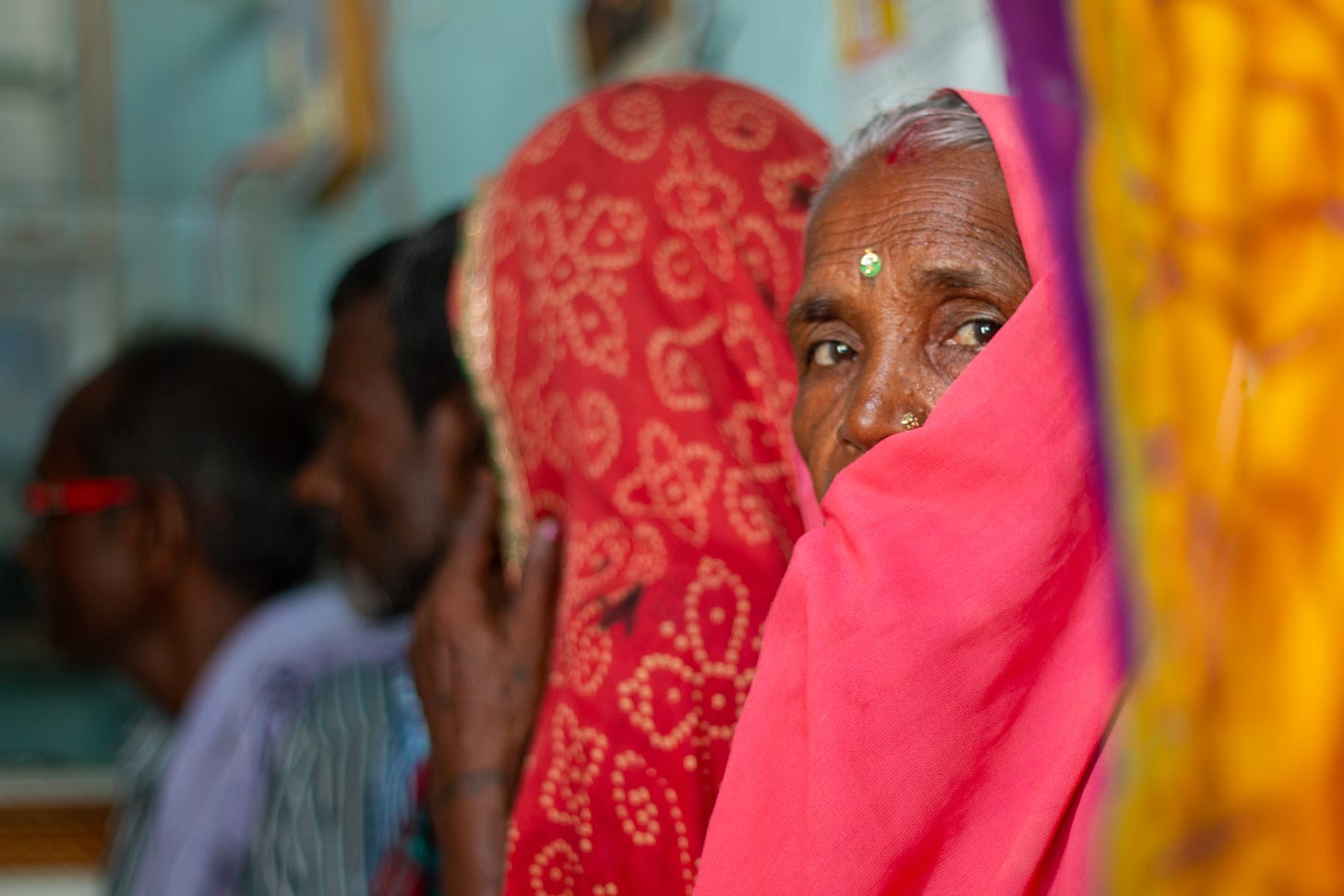
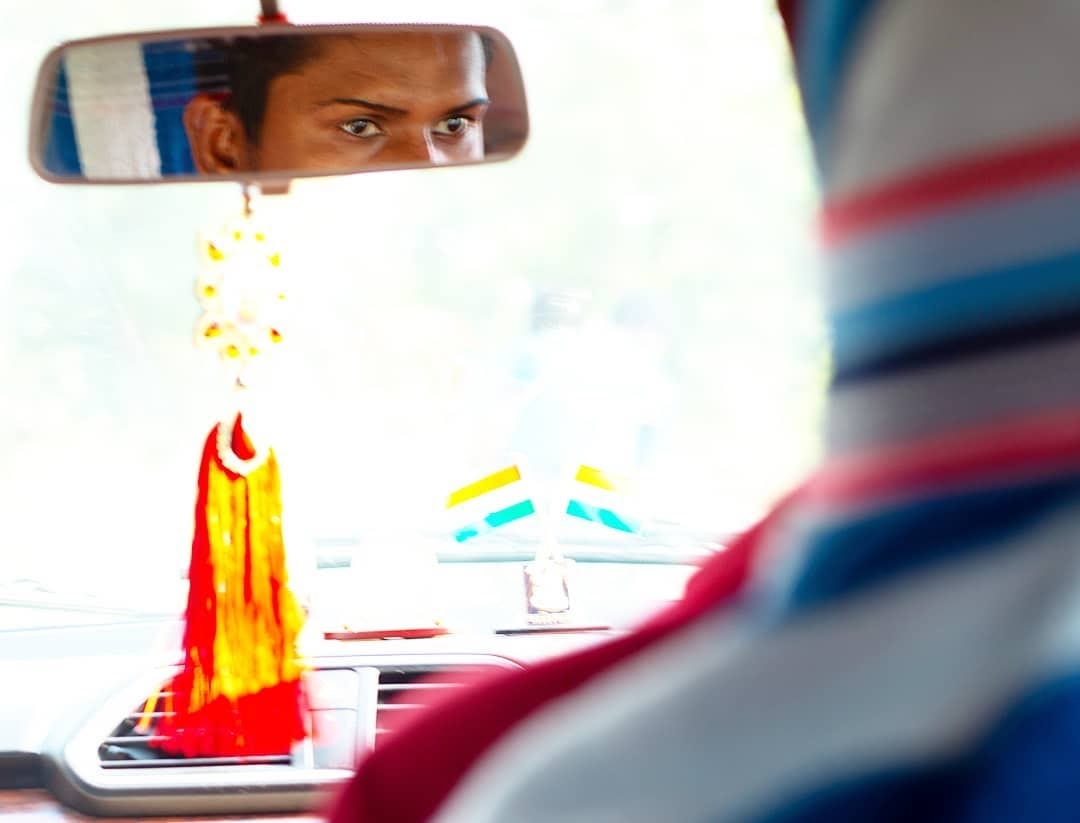
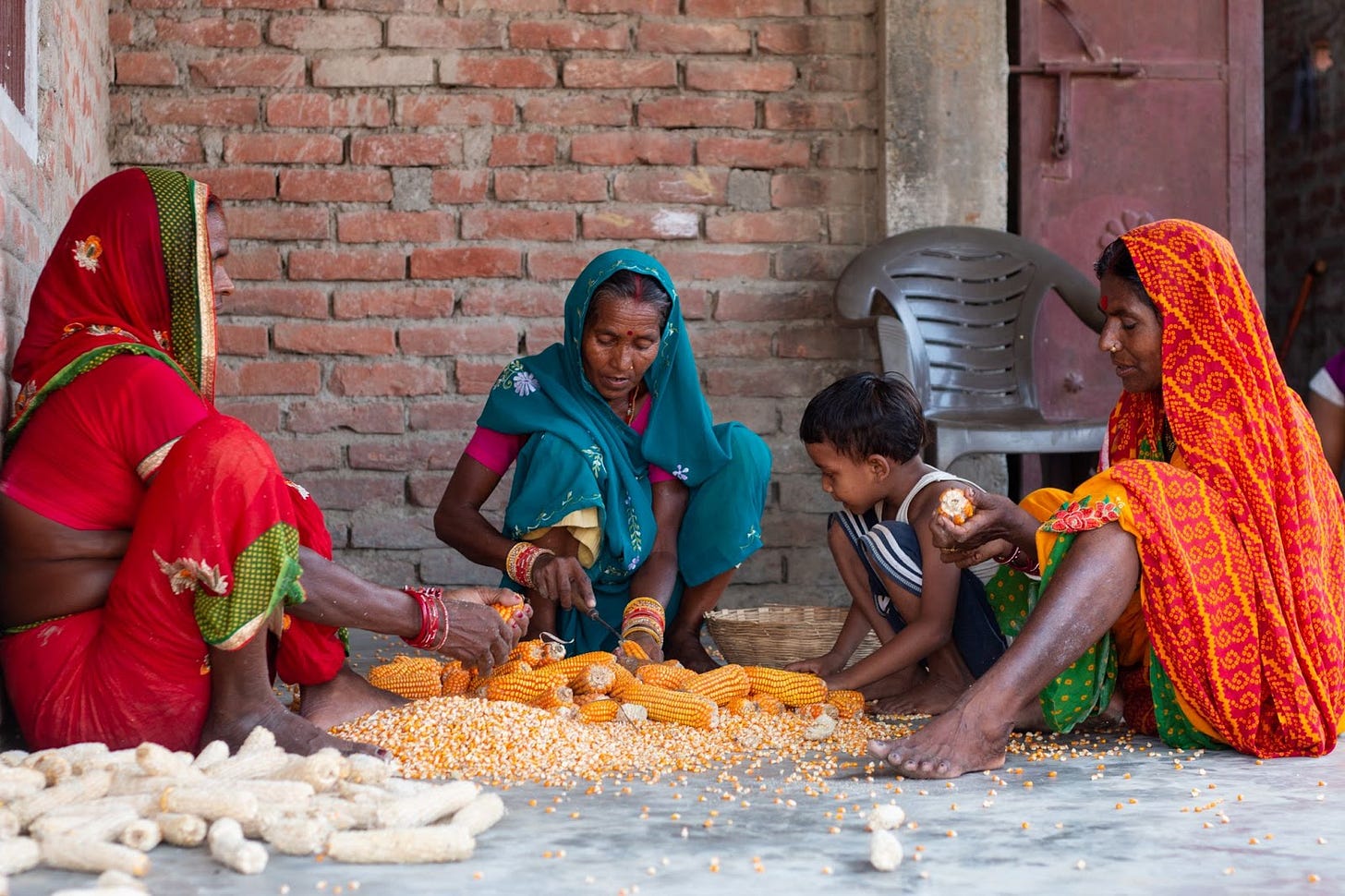


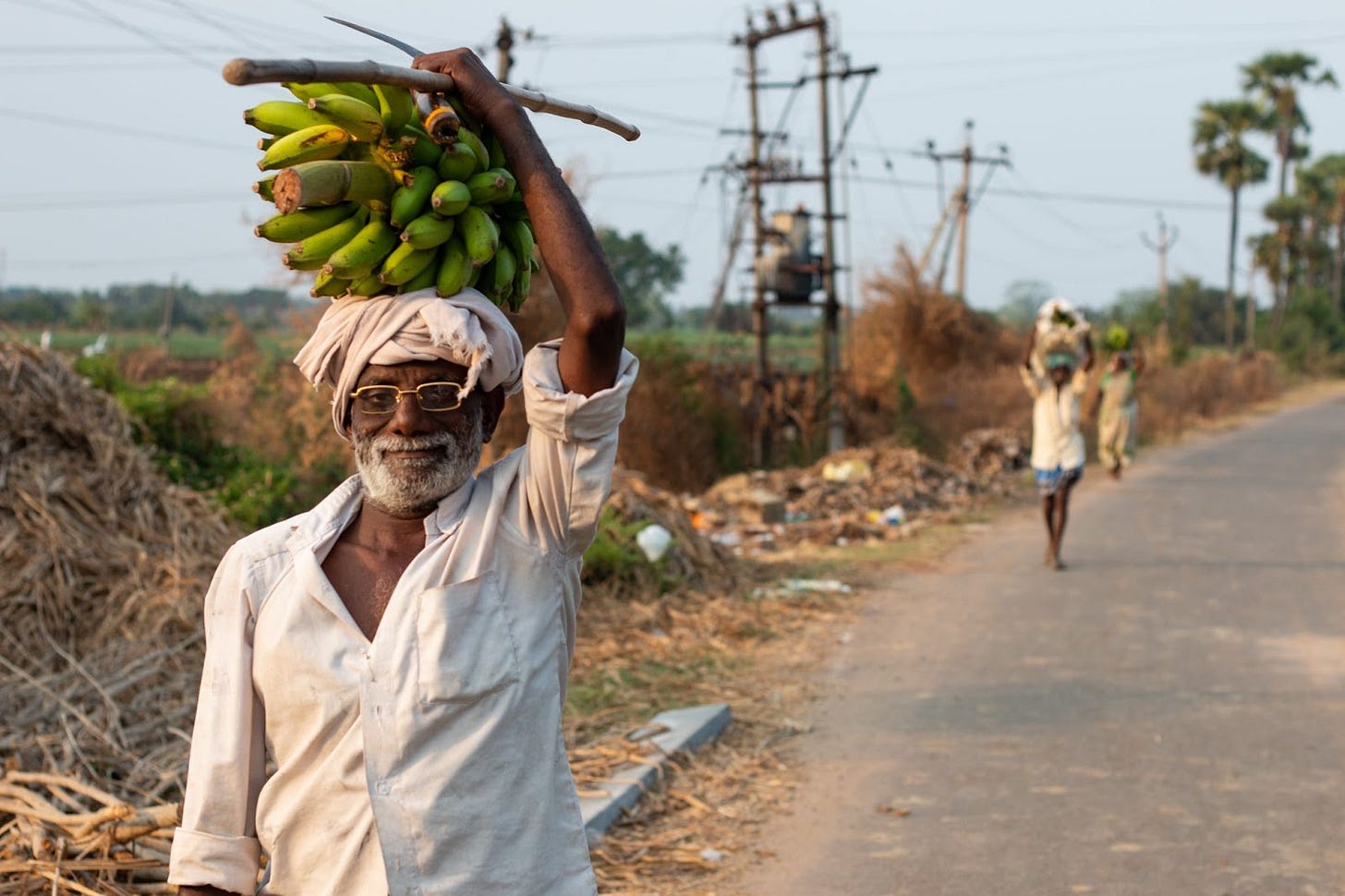
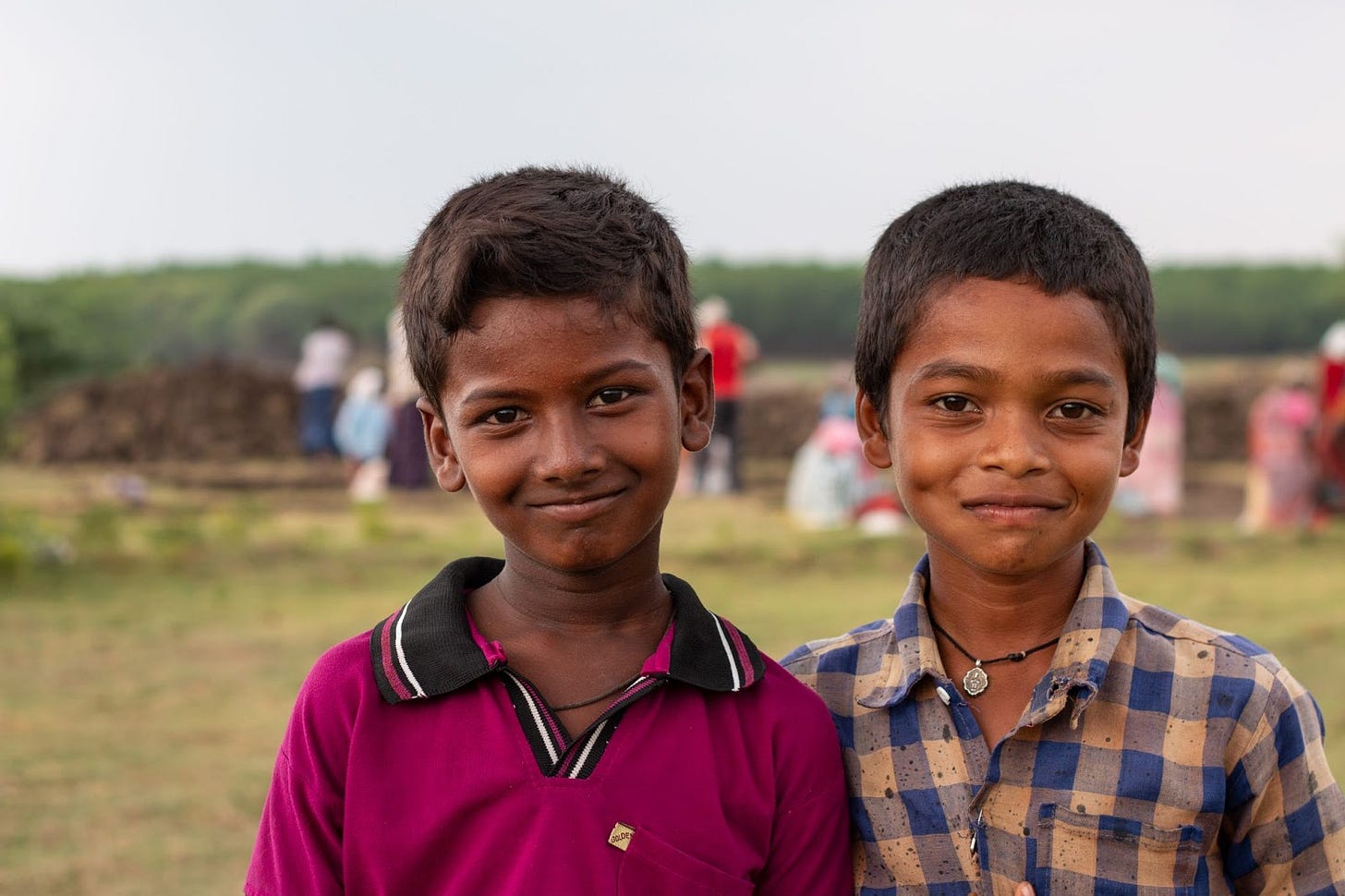


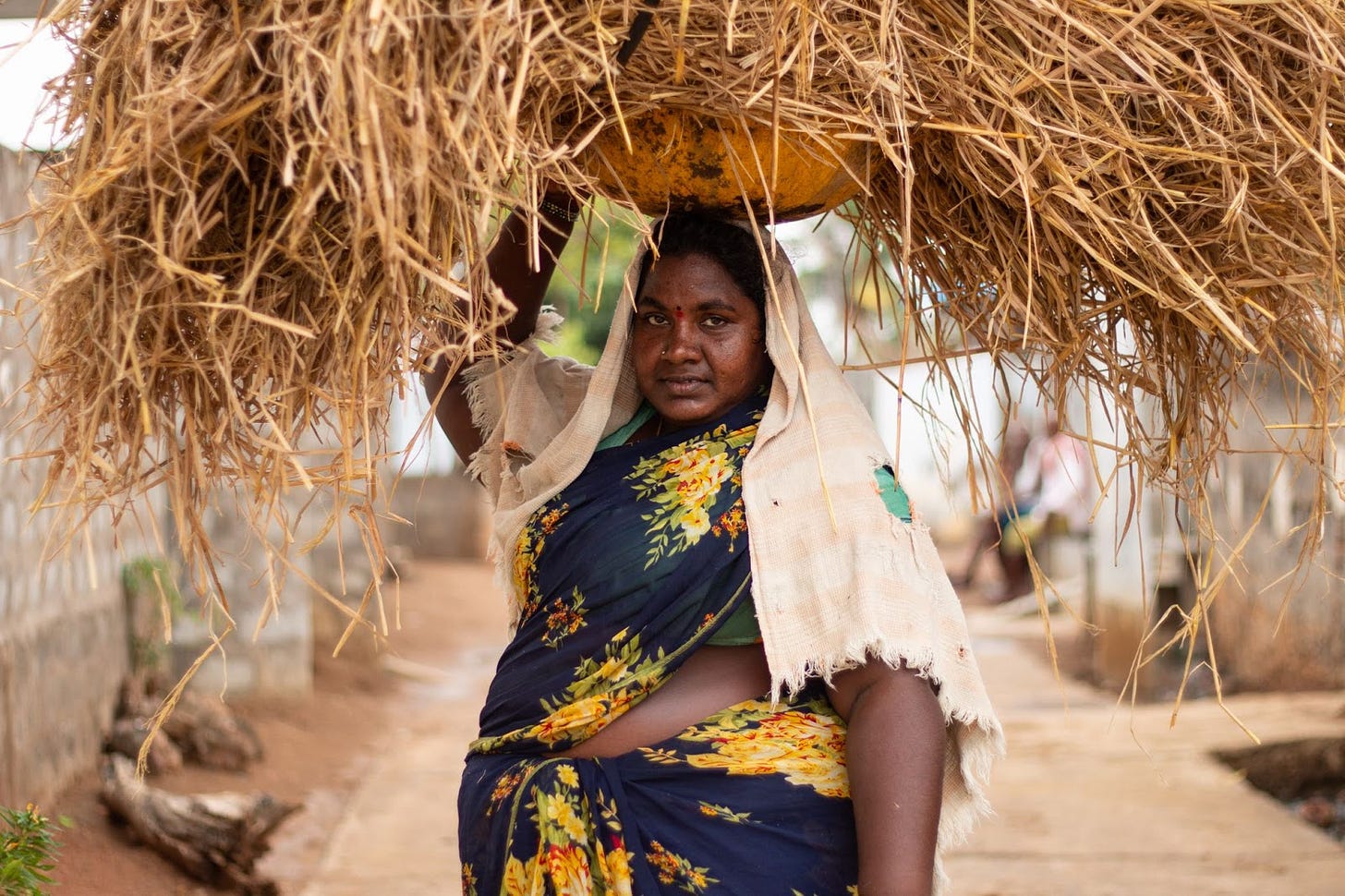

Everyone is a story waiting to be written about. You brought this up vividly here. I love reading what you write. I am already biased. I loved this. The picture and the moment that you shared with the old man will remain with me for a long time. To quote what a beautiful couple said to you…God bless!
A feel good recollection. Loved the feeling of reading it!